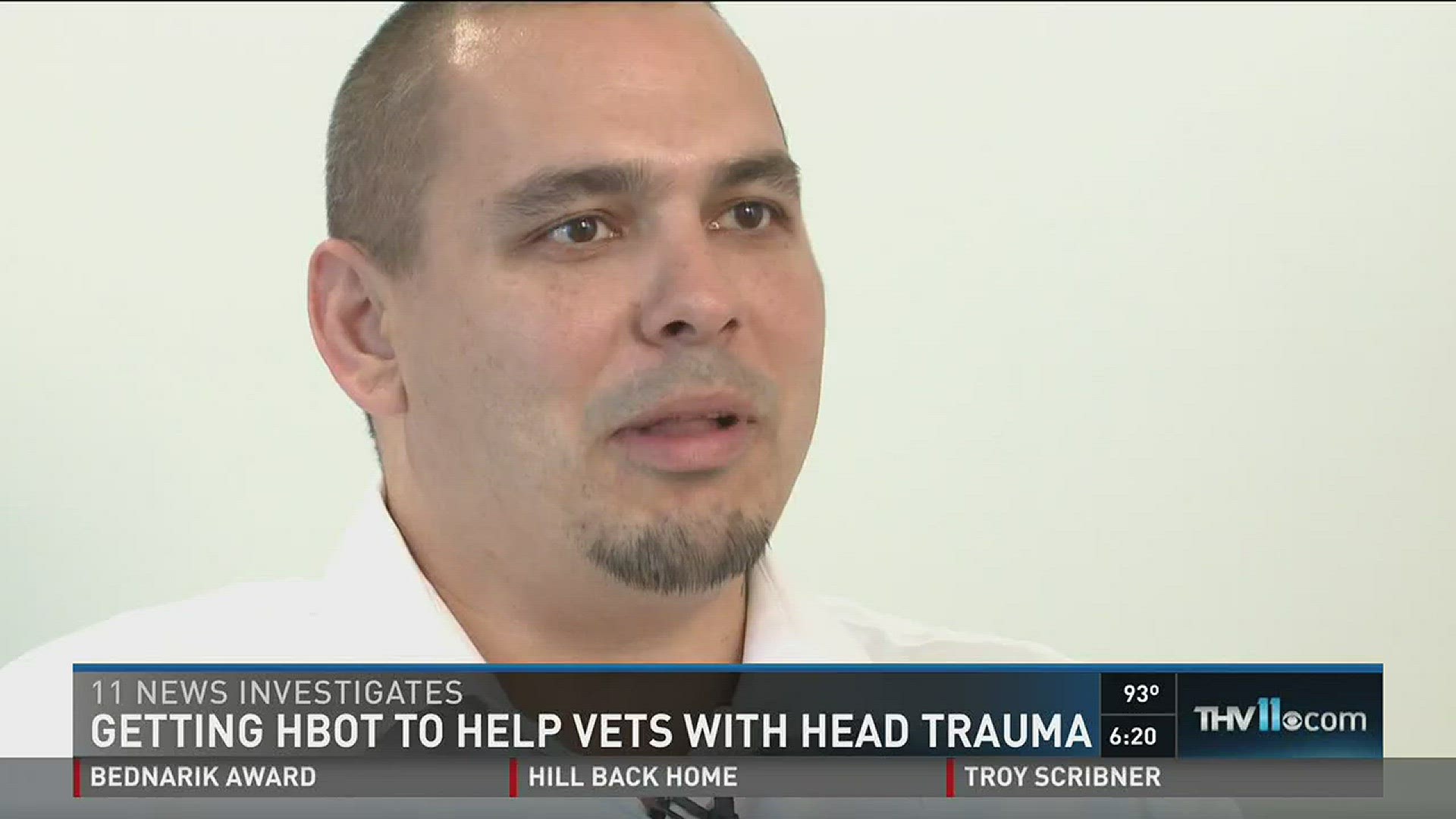HOT SPRINGS, Ark. (KTHV) — Follow Nicholas Jay Olson through his day at a Toyota dealership in his hometown of Hot Springs, and you would hardly believe he has struggled with the notorious aftereffects of his time in the military.
“Headaches, lack of sleep, hypertension, a lot of things come into play,” Olson said, describing his symptoms after leaving the Navy in 2003.
He served for 5 years overseas and stateside, suffering serious head injuries along the way, but he appears all put together. That image belies a decade-long struggle.
“I used to be able to memorize a three-page Beethoven piece in 30 minutes and play it with no sheet music,” Olson said. “Then I can't even remember the dates of my parents’ birthdays that I've been around all of my 34 years.”
Olson credits his recovery with hyperbaric oxygen treatment. Most recognize the chambers as the rooms that save divers and pilots from decompression sickness.
There's a chamber a few miles from his home, but Olson had to travel to Denver to get the help he needed.
The reason for that lies in what his local center is authorized to treat.
“It increases the oxygen in the fluid in the tissues,” said Dr. Robert Kleinhenz, Medical Director for CHI St. Vincent Hyperbaric and Wound Center. “It increases the production of new vessels. Not necessarily at that time, but during that time and later."
Kleinhenz says that process makes HBO an effective treatment for tissue damaged by radiation treatments, diabetics with wounds in their feet and conditions doctor Kleinhenz calls "death of a bone."
HBOT results are documented with wounds like those, but theoretically, the process should be effective on hidden wounds from things like head trauma.
“The problem is that we don't have a lot of evidence-based data,” Dr. Kleinhenz said. “Traumatic brain injury really seems to be promising but again, there's not enough data to say okay we can do this. And certainly the government's not going to allow you to do it.”
And if the government isn’t going to sign off, that means the VA or insurance plans like Medicare or Tricare aren’t going to cover it, leaving vets like Olson stuck paying for the expensive treatment out-of-pocket.
Instead, he was put on a drug regimen.
“You get prescribed some medication and next thing you know, 10 years later you're on all these meds and you're not getting any answers,” Olson said.
But there are groups challenging that.
Organizations and advocacy groups helped Nick pay for the treatments at Rocky Mountain Hyperbaric Institute near Boulder, CO.
That center is willing to go off-label and treat veterans with head injuries. It changed Olson’s life.
“If you'd have told me the stuff that I would have improved on and the things that I've been doing, I'd have called you a liar,” Olson said.

